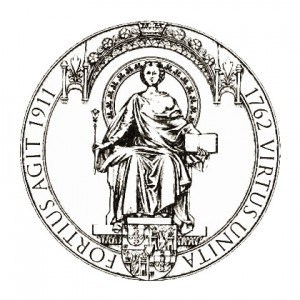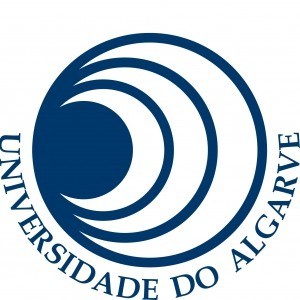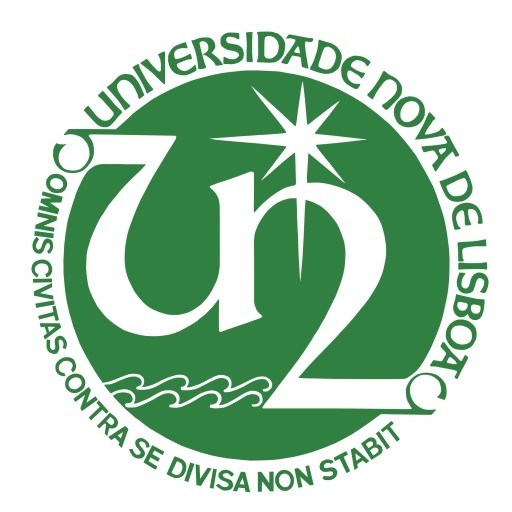Photos of university / #uporto
The Master's Degree in Urban Planning and Urban Project at the University of Porto is a comprehensive and multidisciplinary program designed to equip students with advanced knowledge and practical skills necessary for effective urban planning and development. This program aims to prepare professionals capable of addressing complex urban challenges, such as sustainable development, land use management, environmental impact, social inclusion, and the integration of technological innovations within urban environments.
Throughout the course, students engage with a wide range of topics including urban design, land use planning, transportation systems, environmental sustainability, housing policies, and the social and economic aspects of urban areas. The curriculum combines theoretical foundations with practical applications, providing students with opportunities to participate in real-world projects, internships, and collaborations with municipal authorities and private sector stakeholders. This experiential learning approach ensures that graduates are well-prepared to contribute meaningfully to the development of resilient, inclusive, and innovative urban spaces.
The program emphasizes critical thinking, analytical skills, and a thorough understanding of regulatory frameworks and urban policy. Students learn to interpret spatial data, utilize Geographic Information Systems (GIS), and apply modern planning tools and methodologies. The faculty comprises experienced professionals and researchers who bring current industry insights and academic rigor to the coursework.
Graduates from the Master's in Urban Planning and Urban Project are equipped to work in various sectors, including public planning agencies, private consulting firms, non-governmental organizations, and international development organizations. They can pursue careers in urban design, land management, environmental planning, transportation planning, and policy advisory roles. The program also provides a solid foundation for those interested in pursuing doctoral studies or engaging in research related to urban studies.
Overall, this program at the University of Porto stands out for its balanced focus on theoretical understanding and practical application, fostering innovative thinking and sustainable practices in urban development. It aims to contribute to shaping urban environments that promote quality of life, economic vitality, and environmental stewardship, aligning with global goals for sustainable urbanization.
The Bachelor's Degree in Spatial Planning and Urban Project at the University of Porto offers a comprehensive and interdisciplinary curriculum designed to prepare students for professional practice in the fields of urban planning, spatial development, and territorial management. Throughout the course, students engage with core concepts of geographical analysis, urban design, environmental sustainability, and socio-economic factors influencing spatial development. The program emphasizes a blend of theoretical foundations and practical skills, equipping graduates to address complex urban challenges and promote sustainable development in various settings. Students will explore topics such as land use planning, urban morphology, transportation systems, and heritage preservation, fostering an integrated understanding of the physical, social, and economic dimensions of urban environments. Practical training is provided through project-based assignments, studio work, and collaboration with local authorities and development agencies, allowing students to apply their knowledge to real-world scenarios. The program also encourages critical thinking about policy-making processes, community participation, and innovative solutions for urban regeneration and sustainable living. Graduates of the program will be prepared for careers in municipal planning departments, consulting firms, environmental agencies, and international organizations dedicated to urban development and spatial planning. The curriculum is structured to develop both analytical and creative capabilities, ensuring students can contribute effectively to the design and implementation of spatial and urban projects that improve urban quality of life and promote resilient, inclusive communities.
Program requirements for the Bachelor’s Degree in Spatial Planning and Urban Project at the University of Porto typically include a combination of academic prerequisites, language proficiency, and other competencies. Applicants are generally expected to have completed secondary education with a focus on subjects such as mathematics, geography, and arts, which prepare them for understanding spatial concepts and urban design principles. Proficiency in English or Portuguese is often required, depending on the language of instruction, with standardized tests such as TOEFL or IELTS sometimes accepted to demonstrate language skills.
Applicants may also need to submit a portfolio showcasing previous work related to spatial planning, architecture, or urban projects, to demonstrate their creativity and technical skills. Personal motivation letters, curriculum vitae, and references are commonly part of the application process, providing insight into the candidate’s interest in urban planning and design. Certain prerequisites, such as an interview or entrance exam, might be required to assess the applicant’s motivation, analytical thinking, and familiarity with urban issues.
The program emphasizes interdisciplinary skills, including knowledge of environmental sustainability, urban sociology, and spatial analysis, which implies that applicants should have a strong academic background in these areas or be prepared to acquire such knowledge through preparatory courses or entrance assessments. Basic computer literacy, especially with GIS software and CAD tools, could be advantageous for admission, reflecting the technical nature of the discipline.
Overall, the university seeks applicants with a genuine interest in shaping sustainable and functional urban environments, capable of critical thinking and innovative problem solving, aligning with the program’s focus on sustainable urban development and spatial projects.
The financing studies for the Spatial Planning and Urban Project program at the University of Porto are designed to provide prospective students with comprehensive information about the available funding options, scholarship opportunities, and financial support systems. The university offers a range of scholarships and grants aimed at both Portuguese and international students, including merit-based scholarships, need-based financial aid, and specific awards for students pursuing master's degrees. Applicants are encouraged to explore the university’s official funding pages and contact the financial aid office for detailed eligibility criteria and application procedures. Additionally, students may benefit from national and European Union funding programs, such as Erasmus+ scholarships, which support mobility and exchange initiatives. The university collaborates with various governmental and non-governmental organizations to facilitate financial support and internships, which can help offset the overall cost of the program. Tuition fees vary depending on the student’s domicile status, with Portuguese and European Union students generally paying lower fees compared to international students. The university provides transparent information on tuition costs at the time of application and offers flexible payment plans to accommodate students' financial situations. It also recommends students to seek part-time work opportunities on or near campus, and to consider student loans or external funding sources if necessary. The financial planning for pursuing this master's program should consider not only tuition fees but also living expenses, books, supplies, and other personal costs. By understanding the available financial aid options and planning accordingly, students can better manage their educational expenses and focus on their academic and professional development in the field of spatial planning and urban projects.
The Urban Planning and Urban Project program at the University of Porto is designed to provide students with comprehensive knowledge and practical skills in the fields of urban development, spatial planning, and sustainable city design. The program emphasizes a multidisciplinary approach, integrating principles from architecture, civil engineering, environmental sciences, and social sciences to prepare students for the complex challenges of modern urban environments. Students are engaged in both theoretical coursework and hands-on projects, allowing them to develop technical competencies such as land use analysis, urban design, geographic information systems (GIS), and policy formulation. The curriculum also covers topics like sustainable development, urban resilience, transportation planning, and the socio-economic aspects of urbanization. Through internships and collaborations with local government agencies and planning firms, students gain valuable real-world experience. The program aims to foster innovative solutions for urban regeneration, smart cities, and inclusive urban communities. Graduates of the program are equipped to work in public administration, private planning firms, research institutions, and international organizations focused on urban development. The program is delivered in a combination of lectures, workshops, field visits, and project-based assessments, promoting active learning and professional readiness. The School of Architecture at the University of Porto ensures that the programme aligns with European standards in higher education and urban planning. The course duration typically spans three years for the Bachelor's degree, with options for further specialization or postgraduate studies. With a focus on sustainable practices and the latest technological advancements, the program prepares students to contribute effectively to creating more liveable, resilient, and environmentally responsible urban spaces.


